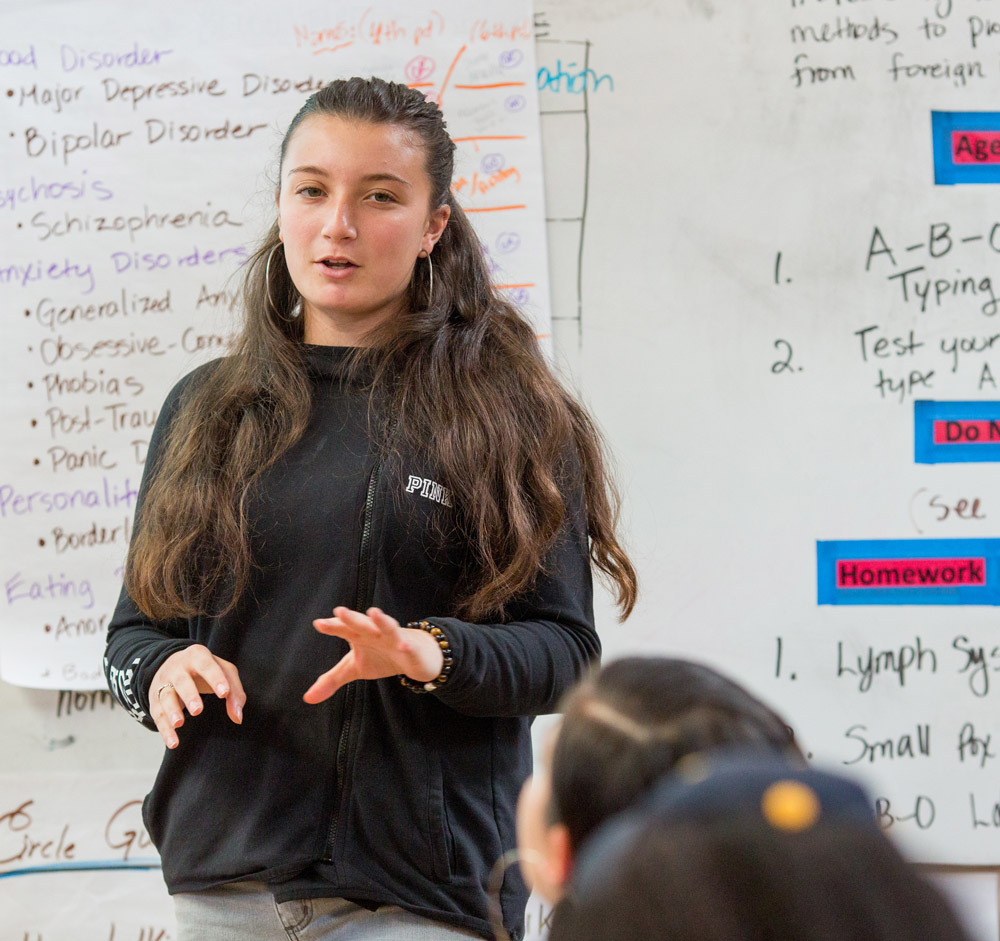What We Believe
Transforming the lives of young people through public education
PMG Photo: Diego G Diaz
Young people thrive when they can bring their full selves into the world and are engaged and supported as learners and changemakers.
Vision
We believe that well-resourced and inclusive public education systems underpin vibrant communities, productive and fair economies, and a healthy democracy. They are also foundational to adolescent thriving. The conditions of young people’s lives – immigration status, zip code, income, or system involvement – should not determine their school experience or life outcomes.
We envision transformed school systems that accelerate academic success and foster creativity, critical thinking, agency, and belonging.
We believe schools should be places where all young people – across all types of difference, including race, class, gender, sexual orientation, language, and ability – feel loved, engage in joyful learning, and are prepared for a purposeful and successful life.
Thriving Adolescents
Adolescence is a time of remarkable growth and potential that deserves and demands our complete attention at the levels of both policy and practice. We believe all young people can thrive if they receive a high-quality, well-rounded education that responds to their interests, makes room for self-expression and self-determination, and supports post-secondary transitions to college, careers, and civic life. For this to happen, public education must be reorganized to create systems, structures, and practices that are designed with student thriving as their primary goal.
Systems Matter
We believe the public education system can and must transform through authentic engagement and the shared leadership of all stakeholders – especially students – to reimagine adolescent learning and thriving.
For us, systems transformation requires staying the course over time. It means both improving structures and practices to better serve young people, and attending to the health of the relationships among educators, parents/caregivers, youth, and community members and organizations. We understand that it is through collective effort and investment that systems are healthy and responsive to the needs and priorities of the whole community.
While our strategy and grantmaking focus primarily on California’s public secondary and postsecondary education systems, we also pay close attention to adjacent systems, such as child welfare and foster care, career and workforce development, and housing and homelessness systems.
We also recognize the important role that innovation plays in informing and catalyzing large-scale change. We seek to learn from promising models that are changing the odds for young people, particularly those furthest from opportunity.

Well-resourced and inclusive public education systems underpin vibrant communities, productive and fair economies, and a functioning democracy.
